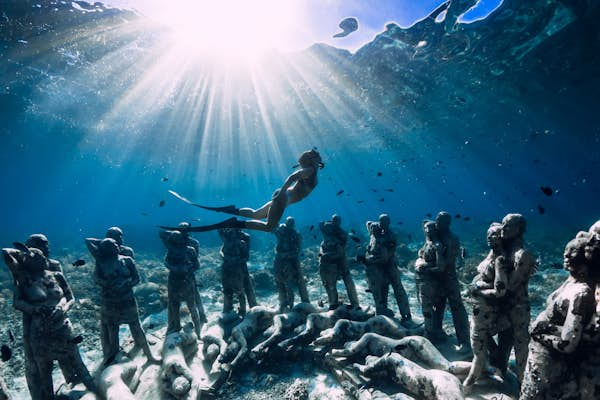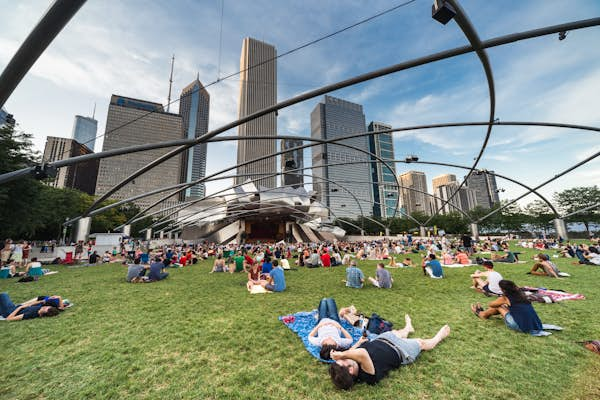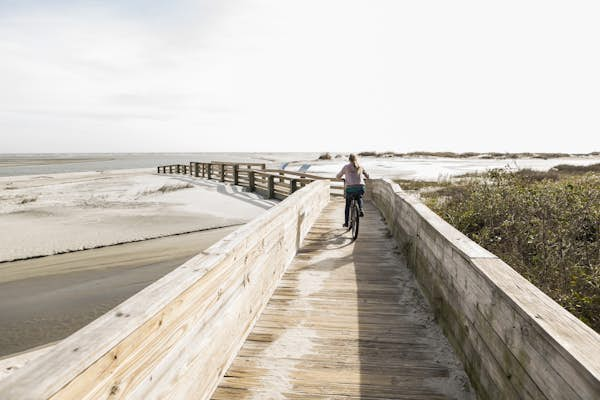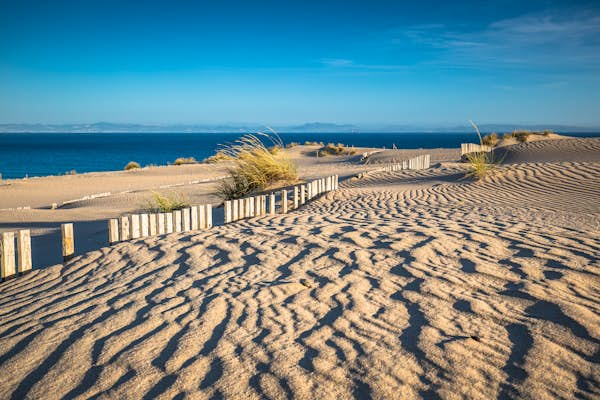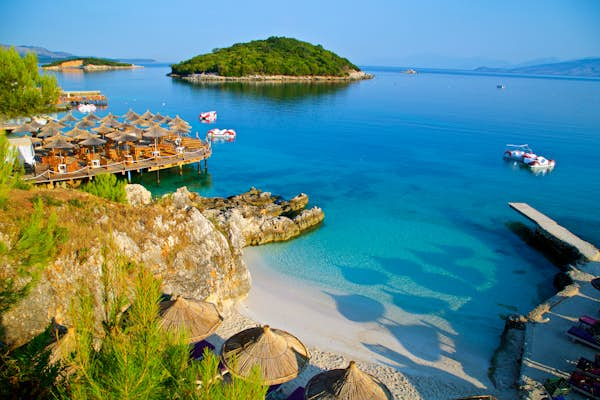A trio of tiny Indonesian islands, Gili Trawangan, Gili Meno and Gili Air all share similar traits. They are each fringed by dreamy white sand beaches, are mercifully free of motorized transport and have excellent diving and snorkeling. Still, each has developed at a very different pace and has a distinctly different atmosphere.
Gili Trawangan is the cosmopolitan jewel in the crown of North Lombok tourism. Expect a buzzing beach strip of bright lights, music and feverish late-night bar hopping. It also has by far the widest range of places to stay with diverse dining options for every budget.
The contrast to sleepy Gili Meno, just minutes away by outrigger boat, couldn’t be any greater. Gili Meno revels in a tropical backwater vibe with virtually no nightlife, but it does have stylish boutique resorts favored by couples seeking an idyllic escape on pristine beaches. It’s no surprise it has become the de facto haven for honeymooners.
Nearest to Lombok, Gili Air sits perfectly in the middle of these two extremes. The bar scene is laid-back and unpretentious and it has some of the best value accommodations. Gili Air also has the largest Sasak population exuding a more authentic local atmosphere.

Best for couples: Gili Meno
Gili Meno isn’t dubbed “Honeymoon Island” for nothing. The smallest of the Gili Islands is by far the top choice for relaxation with an unspoiled castaway island vibe. There is virtually no nightlife to speak of. Evenings consist of barefoot beach dining and sipping cocktails by the water’s edge.
It’s the Gili island best for couples with long stretches of fine white sand all to yourself. The better beach resorts are all geared to couples with in-house wellness options, private snorkeling trips and more. Many of Gili Meno’s top beachfront restaurants offer private dining on the beach or in a shoreside cabana.
Ready to plan your visit to the Gilis? Here are the top places to go

Best for local atmosphere: Gili Air
Let’s face it – the Gili Islands are not cultural hot spots nor do they have much history. There were no permanent residents until the late 1970s and the first trickle of tourists only began arriving in the mid-1980s. Gili Air offers the most locally authentic atmosphere of the three islands. It has proportionally more local family-run businesses and the laid-back pace of life offers more opportunities to interact in a meaningful way. It’s a vibrant community with a number of small scale annual happenings like the slow food and yoga festival that also showcases sustainable handicrafts, art and traditional Sasak music and dance.

Best for snorkeling: Gili Meno
All three islands have the key ingredients for a memorable snorkeling experience – abundant reef fish, colorful corals and endless encounters with inquisitive turtles. That said, tranquil Gili Meno tops its neighbors, simply because the reefs are more pristine and there are far fewer people in the water. Furthermore, it has its very own secret weapon – Nest – an underwater sculpture by artist Jason deCaires Taylor. This photogenic circle of statues sits just 2m (6ft) below the surface, so easily accessible to all snorkelers. It’s a unique experience that has unsurprisingly blown up all over Instagram. These statues also attract huge numbers of reef fish.
It’s the Gili island best for turtles too. Gili Meno’s Turtle Point reef area in the northeast of the island is among the most accessible spots to interact with turtles, often just yards from the beach.
Moving around the islands? Here are our tips on local transportation

Best for nightlife: Gili Trawangan
When pondering which Gili island is best for a party, there is a runaway winner. Gili Trawangan is by far the most cosmopolitan Gili island. The bar scene is nevertheless focused on a relatively small section of the main beach strip. Bar crawls on foot – both organized and impromptu – are an early evening rite of passage. Despite the hype, the Gili Trawangan bar scene is neither pretentious or sleazy. Expect tiki-style open-air dance bars and larger indoor old-school rave venues such as Blue Marlin, a nightlife mainstay for over two decades. Notable evening hangouts include the Sama Sama live reggae bar and Tir Na Nog Irish Bar. There is a weekly rotating schedule of “party nights” where just one venue will stay open later until 3am on a set day of the week.
Planning tip: Gili Trawangan Full Moon Party is a monthly all-night beach rave, a riot of heavy basslines, glow sticks, lasers and fire dancers. It goes on until sunrise and has a buzzy vibe, attracting a regular crowd of locals from both mainland Lombok and Bali.

Best for beaches: Gili Air
All three Gili islands share a common attribute – soft, sugary white sand beaches lapped by clear as crystal azure waters. Gili Air makes for the perfect beach bum destination, without the crowded sands of Gili Trawangan and more beachside amenities than castaway island Gili Meno.
Gili Air’s southern tip has a fairly lively beach vibe but head round to the west coast for stunning, whiter than white sands fringed by sparkling clear waters. Thanks to this being the go-to spot for ocean sunsets, there is a sprinkling of cool beachfront bars and cafes just steps away. For surfers, there is a short, hollow reef break just offshore.

Best for activities: Gili Trawangan
Cosmopolitan Gili Trawangan has the most diverse range of cool things to do beyond the familiar underwater pleasures of snorkeling and scuba diving. Above the water there is leisurely kayaking or paddle boarding, or set the adrenaline to overdrive with parasailing and wakeboarding at Fly Gili Watersports. Climb in the saddle to explore the island by horseback at Stud Horse Riding stables. Overall, it’s the best Gili island for families thanks to resort activity options. Kids will enjoy Gili Golf, a surprisingly tricky crazy golf course with trampolining and indoor games in the attached sports themed cafe.
Choosing which Gili island is best for diving is really down to personal preference as all dive resorts on all three islands visit the same dive sites and dive package prices are fixed.
This article was first published Jun 12, 2019 and updated May 16, 2024.
